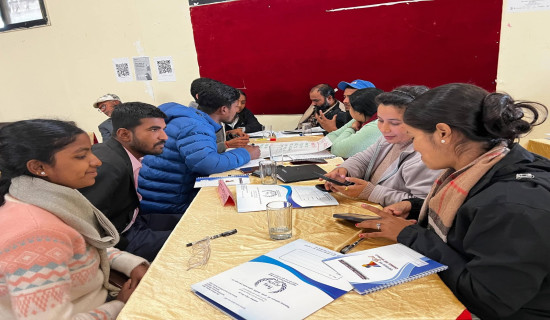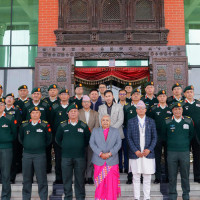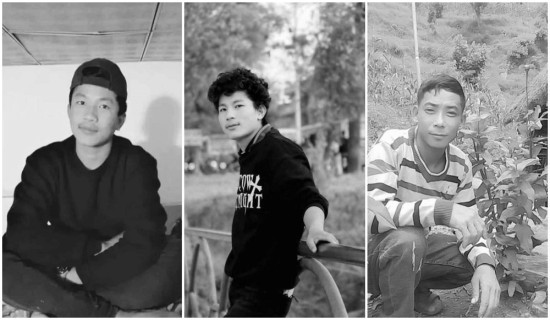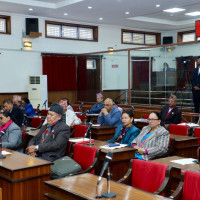- Wednesday, 11 February 2026
Survivors Need Support To Fight For Justice
A former captain of the national cricket team has been convicted of rape after a 15-month-long legal process. Even after the court's final verdict, numerous blaming rumours against the survivor still circulate on social media. In most cases of sexual violence, like this, society blames the survivor instead of the perpetrator. There are countless vivid examples of such heinous crimes in which survivors suffer serious consequences and damage to their lives as a result of family, society, and law enforcement's failure to trust them.
Society treats most survivors as offenders. After such a crime is made public, the perpetrators should feel awkward and regretful. Unfortunately, our situation is the opposite. In our country, a situation occurs in which the survivors are forced to feel humiliation, conceal their identity, and remain nameless. Even in cases where the court has given a verdict in favour of the survivor, society continues to treat survivors and their families unfairly. The law has given a clear definition of rape. But whenever the cases associated with high-profile (power-centred) cases are reported or exposed, the long debate from the teashop to the parliament begins. However, those debates are not intended to support and encourage survivors; the grounds of discussion are centred on convicting victims. In recent cases, some honourable members of parliament have remarked, "The definition of rape must be clarified." These types of debates make perpetrators feel protected, but survivors feel vulnerable and lose hope for justice.
Blaming victims
Society often considers the survivor to be the main cause of the incident. In any case of sexual violence, the victim is not at fault. This is a humiliating, violent attack against an individual's will and a violation of human rights. No victim grants permission for such heinous acts. But individuals who live with the patriarchy mindset, whether they live in a village or in parliament, whether educated or uneducated, regard the victim as at fault. Holders of the feudo-patarchy attitude use the victim-blaming remark without any shame. "The survivor must have provoked the perpetrator into being abusive."
According to the research conducted so far, 80 to 90 per cent of sexual violence is committed by someone the survivor knows. The Nepal police annual fact sheet of the GBV cases also validated this fact. Out of the total of 2,387 rape cases reported to the police in fiscal year 2079/80, 88.2 per cent of the accused are someone the victim knows or has some kind of relationship with. Society often asks trivialising questions to survivors of sexual violence. They might ask, "Why did she go with that person?" or say, "She was laughing and chatting with him, so she must have been okay with it, right?" They might even question why she was dancing or singing with him, suggesting that it couldn't possibly be true if they were friendly.
Put yourself in the survivor's shoes and imagine facing these accusatory questions, rejection, and hate. How would you cope? It's important to realise that many survivors are assaulted by someone they know and trust, perhaps even someone they admire. The level of psychological and emotional trauma they experience is immense. Survivors often feel re-victimised when seeking support from family and society and navigating the legal process, facing disbelief and distrust. Understanding and supporting survivors is crucial to avoiding further pain through scepticism and judgement.
A victim-blaming culture has been established in our society. This culture perpetuates such crimes by pushing survivors to remain silent and boosting the morale of perpetrators. As a result, the majority of sexual violence cases go underreported. Even if reported, there are high chances of hostility due to fear, threats, social and economic challenges, as well as stigma and dishonour imposed on their family members. According to incidents reported to Nepal police, rape cases have increased by 162 per cent over the last decade. Unfortunately, the national health demographic survey (NDHS)-2022 revealed that 66 per cent of women aged 15 to 49 who have experienced physical or sexual violence do not report or seek help from any formal institutions.
Consent and facts
It is a well-known truth that 80 per cent of sexual violence is committed by someone the victim knows. But why is Nepali society unwilling to accept that talking to someone, singing and dancing together, or being in a relationship with anyone does not imply consent for any form of violence?
Chapter 18 of the Muluki Criminal Code 2074 clarifies that consent obtained by way of coercion, undue influence, intimidation, threat, misrepresentation, or abduction or hostage-taking shall not be considered to be consent. Additionally, consent from a girl child under the age of eighteen is not considered consent. The law has also criminalised the marital rape that occurs between people who live in the same house and sleep in the same bed. However, Nepali society is not ready to admit this reality. They are only concerned with how to prove the victim's guilt and exonerate the criminal.
In most cases of rape, undue influence is used to conceal the crime by creating fear, shaming, and warning survivors. In all such incidents, society initially assaults the survivors' character. And if all these efforts fail and the case is reported, the perpetrator's first attempt will be to prove that the survivor is not a minor and that they were in some type of relationship. Again, another level of discussion emerges in society to assassinate the character of survivors. This has become a common scenario in cases of rape, allowing perpetrators to be freed from the crime.
Survivor rights
Each survivor has the right to self-dignity. Survivors of sexual violence experience a distinct level of social stigma and various consequences in their lives differently. They also lose the self-esteem to fight against the injustice that happened to them. Family members, society, and the state should work together to create an enabling environment in which survivors can feel safe and confident. The first step in supporting survivors is to trust them and make them feel that they are not blamed for what happened. It's time to change our perspective on treating survivors. If the day comes when society stops judging survivors, they can speak up without repercussions, and justice will not be delayed or denied.
(Timsina is a women's rights activist and a gender equality and social justice advocate.)




-square-thumb.jpg)












